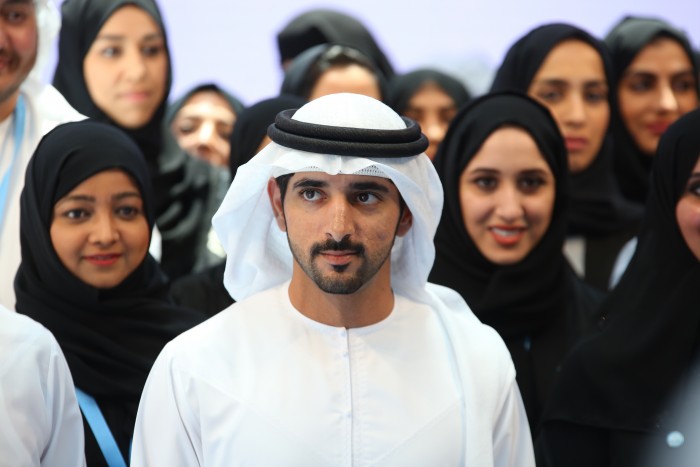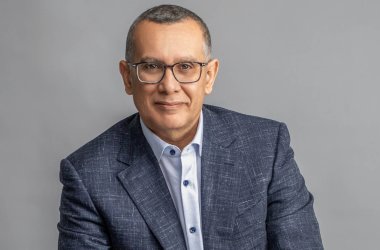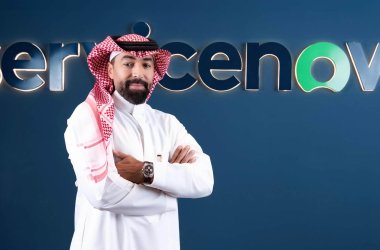Sheikh Hamdan bin Mohammed bin Rashid Al Maktoum, Crown Prince of Dubai and Chairman of The Executive Council said Dubai’s rising global rankings in a range of economic indicators show that it is closing the gap with the world’s most competitive economies.
The Dubai crown prince made his remarks following the release of the result of the annual IMD World Competitiveness Centre report.
Dubai ranks first in the Arab world and fourth worldwide in ‘Economic Performance’ Pillar, ahead of Canada, Japan, Singapore and Hong Kong, and all EU countries (excluding Luxembourg), according to the ‘Dubai Competitiveness Report 2018’ issued by the Switzerland-based IMD World Competitiveness Centre in co-operation with the Dubai Competitiveness Office of the Department of Economic Development (DED).
Sheikh Hamdan said that Dubai’s achievements in global competitiveness, especially in the ‘Economic Performance’ Pillar, have been driven by the fruitful development strategy it has adopted over the last few decades, and a genuine public-private sector partnership.
He also expressed his appreciation for the varied economic sectors and activities, and all those working in the UAE, citizens and residents, for their efforts in enhancing Dubai’s position among advanced economies and for its high global ranking across many indicators.
Sheikh Hamdan also noted that Dubai is an icon among the fastest growing economies in the region, and the world. Today, Dubai represents a unique combination of ambitious people and a pioneering government. He stressed that the private sector is our strategic partner in achieving the future we aspire.
Dubai has also been recognised for its diverse economy. According to the report, economic diversification, underpinned by remarkable performance across strategic sectors, contributed to 72.2 percent of the total economic growth achieved in 2017. Thus, Dubai is ranked 8th in the world for ‘Diversification of The Economy,’ ahead of developed economies like Switzerland, Japan, France and the United Kingdom.
Dubai has advanced service sectors today, each of which is a milestone for the economy in Dubai, including land, sea and marine transportation, warehousing, wholesale and retail trade, foreign trade, housing and foods.
In its preparations for the future, Dubai established institutions such as the ‘Dubai Future Foundation,’ which is working on future-focused initiatives. Last year, Dubai launched the ‘Dubai 10X’ initiative to apply what rest of the cities in the world will implement 10 years later. Dubai will also become the largest laboratory for future government experiences in the world, which will sustain Dubai’s competitiveness.
Recently, Dubai launched the Dubai Blockchain Strategy, making Dubai government the first in the world to conduct all transactions through this future network, thereby achieving a quantum leap in the efficiency of government transactions and all economic sectors.
Dubai accords top priority to innovation and seeks to turn into a global hub for innovation in varied areas of the economy, education and health, among others. Currently, Dubai is working on spreading the culture of excellence, creativity and innovation to be the philosophy that governs the work of national institutions by providing an atmosphere that encourages leadership and initiative at the regional and international levels in line with the Dubai 2021 Plan, which is dependent on various factors, including innovation to achieve sustainable development.
Dubai seeks to change its course always to keep pace with globalisation and the technology revolution taking place in the world. The approach in the Dubai 2021 Plan is to achieve total factor productivity growth within an economic diversification framework that goes beyond traditional business models to transform the emirate into a knowledge-based economy.
The first of its kind in the region, the Report compares Dubai with 63 economies across the world based on 346 competitiveness indicators of the World Competitiveness Yearbook. The Report contains a scientific analysis of the competitiveness indicators in different sectors and their implications on policy development. It also provides reference frameworks for public and private sector decision-making in Dubai to formulate appropriate strategies to promote economic growth and consolidate the emirate’s position on the global competitiveness map.
Dubai ranks first globally in both ‘Gross Domestic Savings’ (% of GDP) and ’Employment Growth’, and second in ‘Exports of Goods’ (% of GDP), low ‘Unemployment Rate’ and ‘Youth Unemployment.’ Dubai also ranks third globally in ‘Employment (%),’ ‘Exchange Rates,’ ‘Export Concentration by Partner,’ and ‘Exports of Goods Per Capita’ in addition to being fourth in terms of both ‘GDP Per Capita’ (by purchasing power parity – PPP) and ‘Tourism Receipts’ (% of GDP).
Within the Arab world, Dubai leads on several indicators such as ‘Direct Investment Flows Inward,’ ‘Forecast Inflation,’ ‘Government Consumption Expenditure–Real Growth’, ‘Export Concentration by Partner,’ and ‘Tourism Receipts’.
The ‘Dubai Competitiveness Report 2018’ ranks Dubai the first globally in ‘Employment Growth’ rate and 20th in ‘Employment in the Public Sector’. Dubai is also ranked second in [low] ‘Unemployment’ rate globally especially among the youth. This is due to the efforts exerted by the Ministry of Human Resources and Emiratisation and various stakeholders in enhancing flexibility of the labour market.





